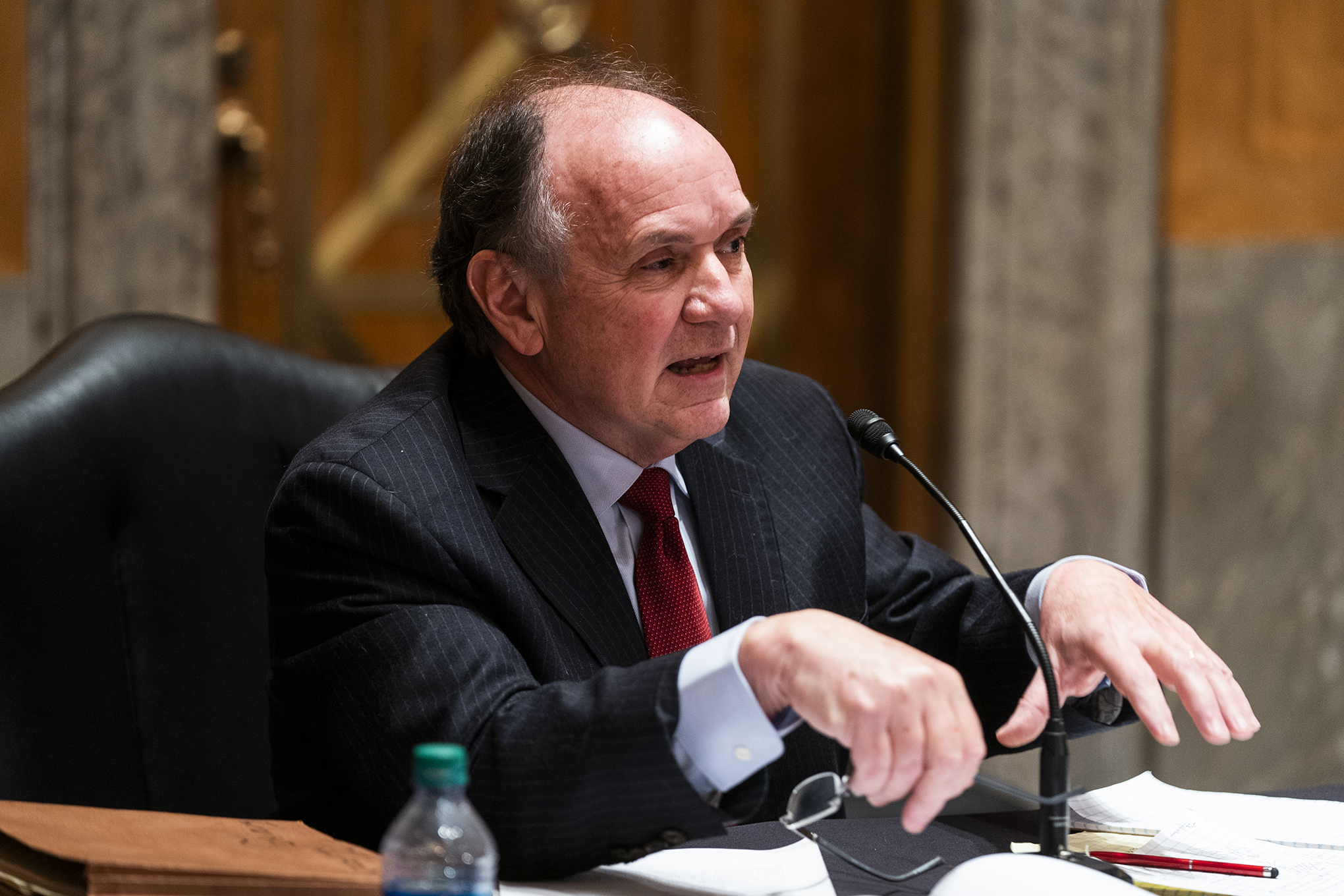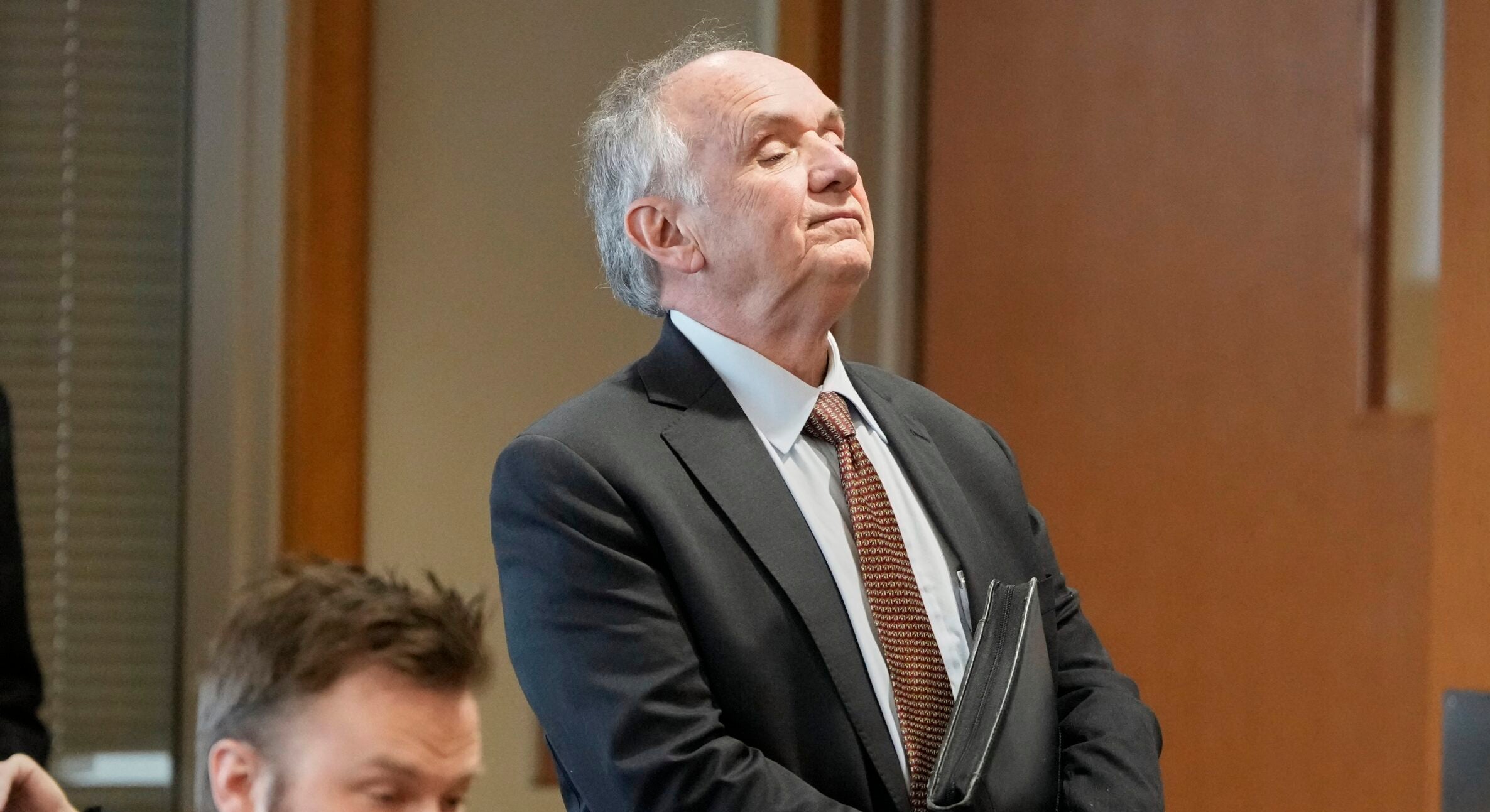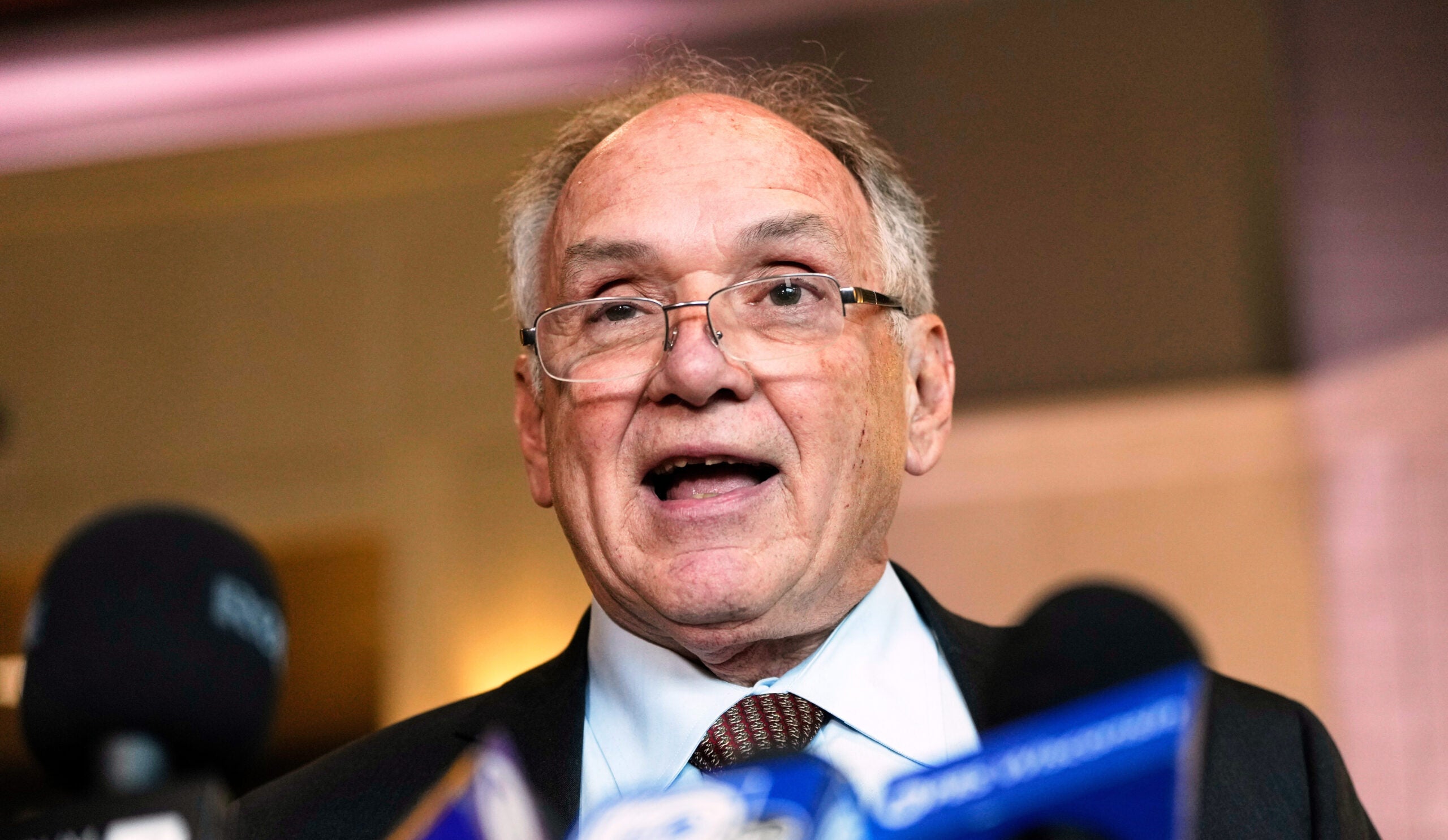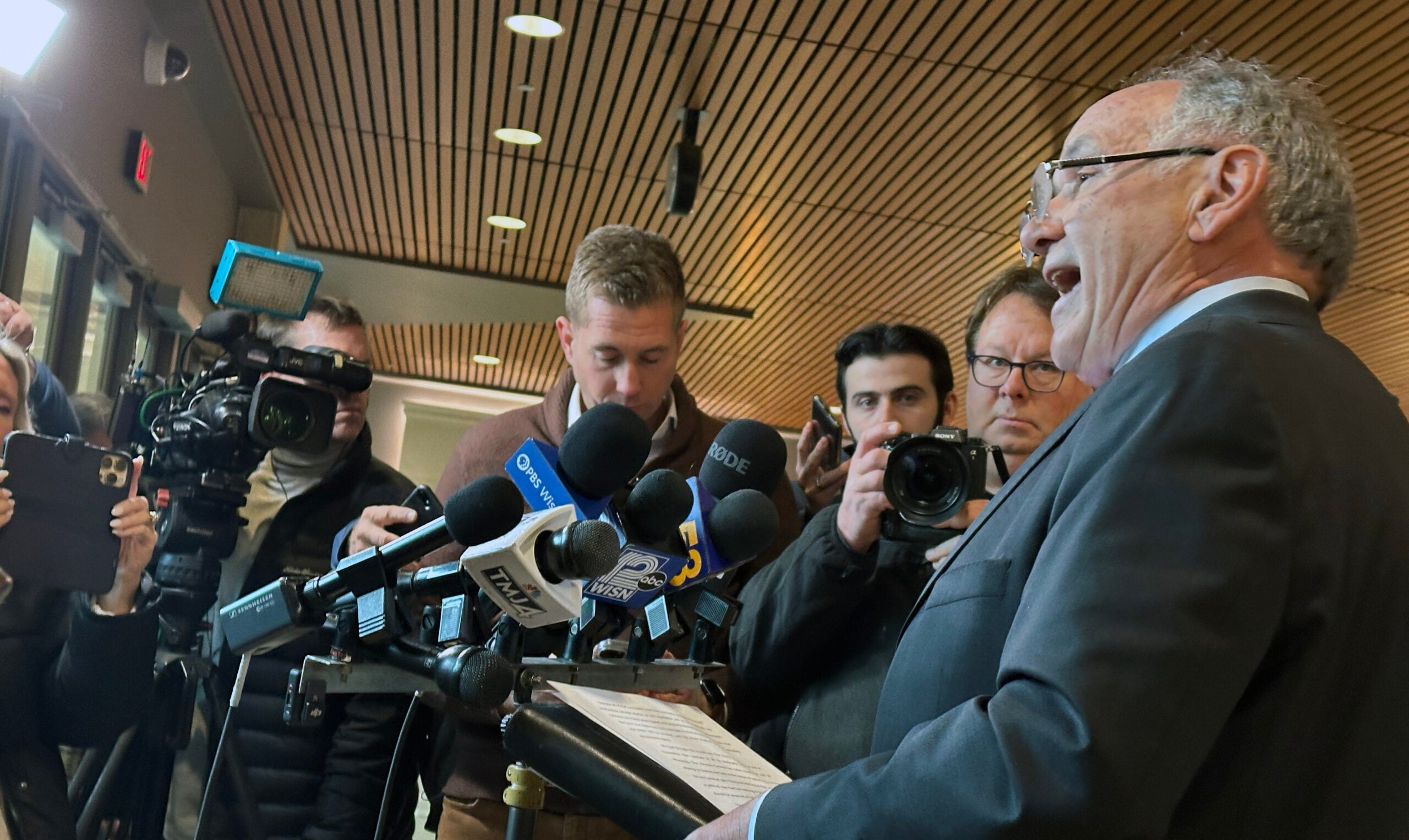Former Dane County Judge Jim Troupis could lose his Wisconsin law license over his role in a plot to overturn the 2020 election results.
Wisconsin’s Democratic Attorney General Josh Kaul filed forgery charges earlier this month against Troupis and two other Trump allies — Kenneth Chesebro and Michael Roman.
They’re charged with helping to submit official-seeming paperwork, claiming that Donald Trump won Wisconsin, even though the former Republican president lost by more than 20,000 votes.
News with a little more humanity
WPR’s “Wisconsin Today” newsletter keeps you connected to the state you love without feeling overwhelmed. No paywall. No agenda. No corporate filter.
Troupis, Chesebro and Roman are due in Dane County Circuit Court in September. Each man faces a single felony count.
Felony conviction doesn’t necessarily lead to loss of Wisconsin law license
But, even if he’s found guilty, a felony conviction would not automatically lead to the loss of Troupis’ law license.
That’s unlike in other states, such as Texas and Maine, where people with felony convictions cannot practice law.
“Not all crimes are created equal and not all result in discipline,” said Stacie Rosenzweig, an attorney who specializes in legal ethics and licensing.
In Wisconsin, attorneys must report to the state’s Office of Lawyer Regulation and the Wisconsin Supreme Court if they’re convicted of crime, whether that’s a felony or misdemeanor, Rosenzweig said.
That report triggers an investigation from the office. But Rosenzweig said regulators will only pursue disciplinary action if they determine that the crime reflects negatively on someone’s ability to practice law.
Attorney rules prohibit dishonesty, fraud
“Crimes involving dishonesty, misrepresentation fraud — those are always going to reflect aversely to varying degrees,” Rosenzweig said. “Truthfulness is paramount.”
A section of the Wisconsin Supreme Court’s rules of professional conduct bars attorneys from actions “involving dishonesty, fraud, deceit or misrepresentation.”
Those rules apply “24/7,” Rosenzweig said.
“Whether you’re practicing law at the time or not, you’re not allowed to lie or commit fraud,” Rosenzweig said. “So anything like that is going to be looked at.”
In some cases, a finding from the Office of Lawyer Regulation could result in a reprimand. But in other instances, the office can recommend that an attorney’s license be suspended or revoked. More serious cases are submitted to a preliminary review committee, which determines whether the complaint should be forwarded to Wisconsin’s Supreme Court.
Justices on the state’s high court have the final say about whether to pull someone’s law license.
Last week, the state’s Supreme Court issued a brief order, suspending Troupis from an advisory panel on judicial ethics.
Even in the absence of a criminal conviction, Wisconsin’s Office of Lawyer Regulation can start its own investigation into attorney misconduct. That can come in response to a grievance filed against a lawyer, or it can start from the office’s own initiative.
“The attorneys there, they all see things too, and they can initiate things from within,” Rosenzweig said of the office. “I’m aware of certain circumstances where they have initiated investigations based on news reports.”
The whole process can be lengthy, Rosenzweig said, sometimes taking years to resolve after the start of an investigation.
Rosenzweig also noted that Wisconsin’s rules allow for someone’s law license to be suspended while a discliplinary proceeding is still pending if that attorney is convicted of a “serious crime.” And there’s a process allowing the Supreme Court to a lawyers’ license temporarily if allowing that person to practice law “poses a threat to the interests of the public and the administration of justice.”
Wisconsin Court System spokesperson Stephen Kelley declined to comment on whether a disciplinary investigation is ongoing into Troupis’ conduct or on whether someone has filed a grievance against him.
Kelley said a Wisconsin Supreme Court rule requires any such an investigation to remain confidential until the Office of Lawyer Regulation files a complaint alleging misconduct.
Joseph Bugni, Troupis’ attorney, declined to comment for this story.
3 people charged so far in Wisconsin false elector plot
During a news conference this month, Kaul declined to say whether his office plans to charge additional people beyond Troupis, Chesebro and Roman as part of a probe into the attempted overthrow of Wisconsin’s election results.
Roman, a former Trump aide, is not an attorney. Like Troupis, Chesebro was a lawyer for Trump although online records show he hasn’t been licensed by the state of Wisconsin.
So far, prosecutors in four other swing states have filed charges related to a scheme to submit false electors in 2020 election.
Roman has been charged in both Arizona and Georgia. Chesebro pleaded guilty to charges in Georgia, which has affected his ability to practice law in several other states.
This spring, for instance, the Massachusetts Supreme Judicial Court suspended Chesebro’s law license in that state. And his felony conviction in Georgia also led to the suspension of his law license in California.
As part of a civil settlement earlier this year, both Troupis and Chesebro admitted to overseeing a fake elector scheme in Wisconsin.
Editor’s note: This story has been updated to correct the name of the Office of Lawyer Regulation.
Wisconsin Public Radio, © Copyright 2025, Board of Regents of the University of Wisconsin System and Wisconsin Educational Communications Board.






